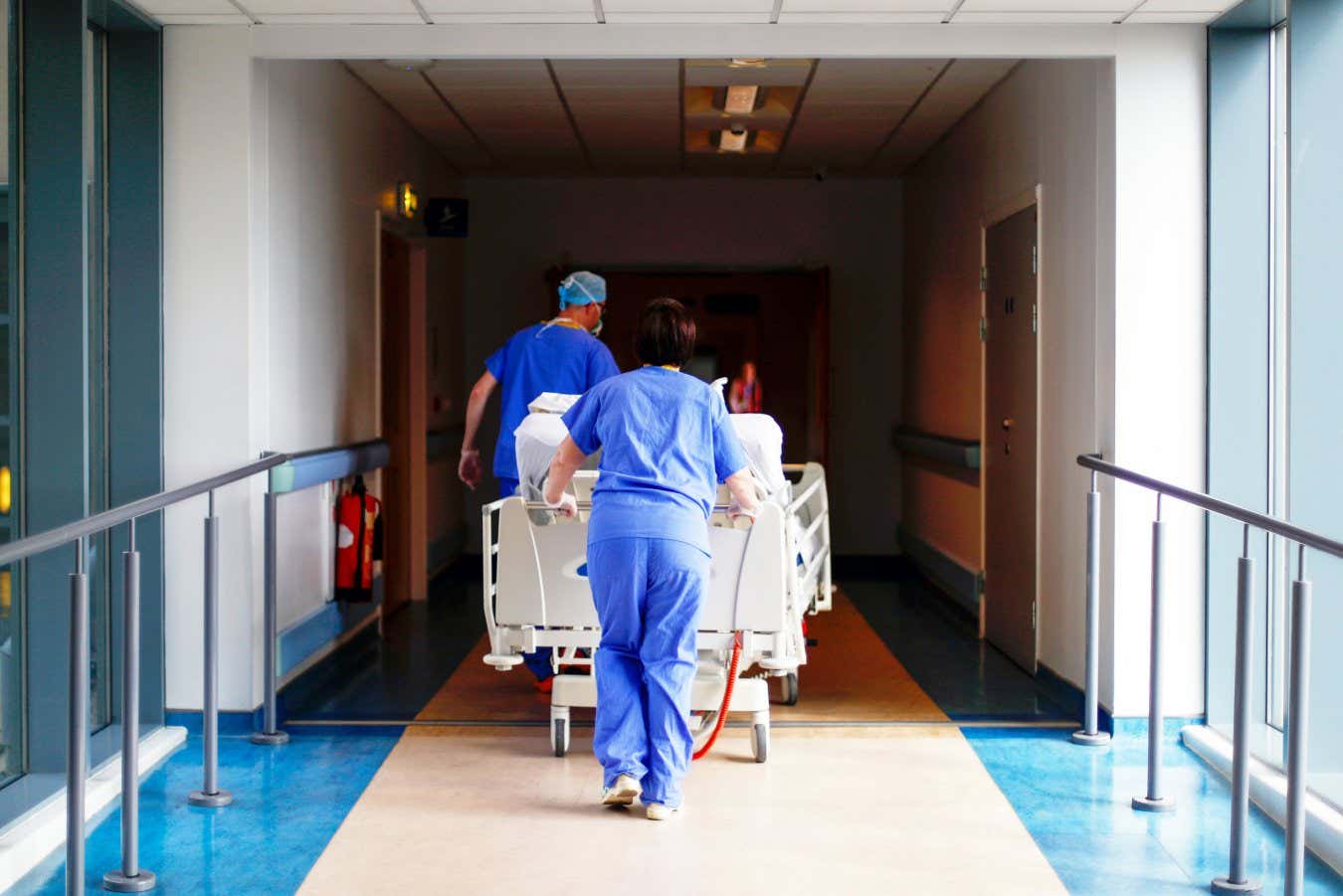The makers of an AI model called Foresight say it could help predict disease or hospitalisation rates, but others have expressed concern about the fact it is trained on millions of health records
By Alex Wilkins
7 May 2025
The Foresight AI model uses data taken from hospital and family doctor records in England
Hannah McKay/Reuters/Bloomberg via Getty Images
An artificial intelligence model trained on the medical data of 57 million people who have used the National Health Service in England could one day assist doctors in predicting disease or forecast hospitalisation rates, its creators have claimed. However, other researchers say there are still significant privacy and data protection concerns around such large-scale use of health data, while even the AI’s architects say they can’t guarantee that it won’t inadvertently reveal sensitive patient data.
The model, called Foresight, was first developed in 2023. That initial version used OpenAI’s GPT-3, the large language model (LLM) behind the first version of ChatGPT, and trained on 1.5 million real patient records from two London hospitals.
Read more
The AI expert who says artificial general intelligence is nonsense
Advertisement
Now, Chris Tomlinson at University College London and his colleagues have scaled up Foresight to create what they say is the world’s first “national-scale generative AI model of health data” and the largest of its kind.
Foresight uses eight different datasets of medical information routinely collected by the NHS in England between November 2018 to December 2023 and is based on Meta’s open-source LLM Llama 2. These datasets include outpatient appointments, hospital visits, vaccination data and records, comprising a total of 10 billion different health events for 57 million people – essentially everyone in England.
Tomlinson says his team isn’t releasing information about how well Foresight performs because the model is still being tested, but he claims it could one day be used to do everything from making individual diagnoses to predicting broad future health trends, such as hospitalisations or heart attacks. “The real potential of Foresight is to predict disease complications before they happen, giving us a valuable window to intervene early, and enabling a shift towards more preventative healthcare at scale,” he told a press conference on 6 May.
